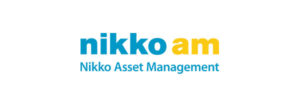
InvestNow News – 20th August – Nikko AM – July Investment Update
Commentary from George Carter, Managing Director, Nikko AM
In many developed countries, societies and governments are starting to see an end to the most intensive impact of Covid-19. With Vaccination rates now north of 50% in major economies (UK 64.2%, USA 54.5%, EU 54.3%, Mainland China 61.6% [FYI Data 6 August]) attention is turning towards the re-opening and restart of more normal activity. In this restart there are a wide range of potential outcomes, consequently, market volatility has been increasing as sentiment moves between extremes. Concerns around runaway inflation compete against the risk of a potential downturn should a new virus variant take hold. Most recently the bond market has looked through the latest strong US employment numbers and inflation data and focused on virus concerns. This has seen real yields drop back towards historic lows. These swings in sentiment are to be expected and will likely continue. With uncertainty remaining and arguments around the transitory nature of the current uptick in inflation yet to be proved invalid we expect central banks to err on the side of caution regarding the growth and retain stimulatory policies for longer than they otherwise normally would – a positive for risk assets.
Economies are entering a restart phase with Covid inspired restrictions being removed or loosened. This restart of activity is happening amid both highly supportive fiscal and monetary policy responses. The presence of these twin supportive factors is highly different from what we saw in the last global downturn, the global financial crisis of 2008 where fiscal austerity measures directly contributed to a long and sluggish recovery. The response from central banks also differs from that seen during the financial crisis. Central banks appear willing to keep highly supportive monetary policy in place for longer taking the view it’s better to get growth and employment really humming before applying the brakes and dealing with any potential inflation pressures. The net result of these factors is an environment that is highly positive for risk assets with a cost of capital remaining low and spending high – we expect these factors to remain in play for the year. This does not mean a smooth ride up for share and asset prices, risks still remain on the horizon with potential for stops and reversals should a new virus variant take hold. With markets presenting volatility and uncertainty an agile active approach to asset management as used in Nikko’s diversified funds is prudent.
InvestNow News – 20th August – Nikko AM – July Investment Update
Commentary from George Carter, Managing Director, Nikko AM
In many developed countries, societies and governments are starting to see an end to the most intensive impact of Covid-19. With Vaccination rates now north of 50% in major economies (UK 64.2%, USA 54.5%, EU 54.3%, Mainland China 61.6% [FYI Data 6 August]) attention is turning towards the re-opening and restart of more normal activity. In this restart there are a wide range of potential outcomes, consequently, market volatility has been increasing as sentiment moves between extremes. Concerns around runaway inflation compete against the risk of a potential downturn should a new virus variant take hold. Most recently the bond market has looked through the latest strong US employment numbers and inflation data and focused on virus concerns. This has seen real yields drop back towards historic lows. These swings in sentiment are to be expected and will likely continue. With uncertainty remaining and arguments around the transitory nature of the current uptick in inflation yet to be proved invalid we expect central banks to err on the side of caution regarding the growth and retain stimulatory policies for longer than they otherwise normally would – a positive for risk assets.
Economies are entering a restart phase with Covid inspired restrictions being removed or loosened. This restart of activity is happening amid both highly supportive fiscal and monetary policy responses. The presence of these twin supportive factors is highly different from what we saw in the last global downturn, the global financial crisis of 2008 where fiscal austerity measures directly contributed to a long and sluggish recovery. The response from central banks also differs from that seen during the financial crisis. Central banks appear willing to keep highly supportive monetary policy in place for longer taking the view it’s better to get growth and employment really humming before applying the brakes and dealing with any potential inflation pressures. The net result of these factors is an environment that is highly positive for risk assets with a cost of capital remaining low and spending high – we expect these factors to remain in play for the year. This does not mean a smooth ride up for share and asset prices, risks still remain on the horizon with potential for stops and reversals should a new virus variant take hold. With markets presenting volatility and uncertainty an agile active approach to asset management as used in Nikko’s diversified funds is prudent.



